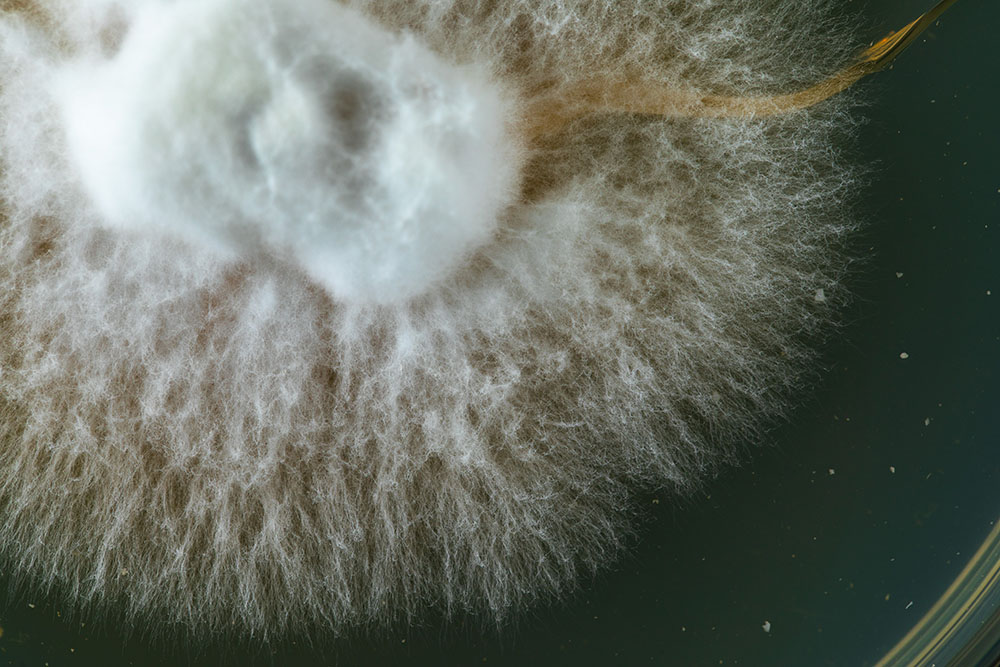How Does Mould Impact Indoor Air Quality?

CONTENTS
- Understanding mould and its impact on air quality
- Health risks associated with mould exposure
- Structural implications of mould growth
- Preventing mould growth
- Living with better air quality
- Frequently asked questions
- Get in touch
Mould is a complicated growth that comes in various forms, compromising the air quality of your home and its structural integrity. Long-term exposure to it can even pose serious health risks, leading to respiratory issues and mental health problems.
At ICE Cleaning, our mould remediation services are paving the way for professional cleaning in the UK, helping to prevent its spread in the local community. We work closely with your local council and adhere to Awaab's Law, ensuring all social housing is safe for families to inhabit again.
Read on to learn about the process of understanding mould, detecting it early and eliminating it efficiently.
Understanding mould and its impact on air quality
Mould is an organic growth that thrives in damp, humid conditions. Although it usually grows outside, some homes are vulnerable to it and harbour its spores until it becomes a colony. After a while, it can negatively impact your air quality and harm your health.
Once mould spores start growing, they release tiny particles into the air we breathe. These airborne spores can cause various health problems, from irritating allergies to more serious respiratory issues.
The issue is not limited to health, however. Poor indoor air quality affected by mould growth can also lead to unpleasant odours and an uncomfortable living environment.
Health risks associated with mould exposure
Mould exposure can lead to several health issues. Some people might experience minor symptoms like a stuffy nose, coughing or skin irritation. But for others, the impact could be more severe.
If you are allergic to mould or suffer from asthma, your reactions could be intense. Prolonged contact may even lead to chronic respiratory illnesses like aspergillosis and bronchitis, damaging the lungs. In extreme cases, more severe illnesses have been reported that include:
- Mycosis
- Allergic bronchopulmonary aspergillosis
- Mycotoxin toxicity
Structural implications of mould growth
Mould is a health hazard and a risk to your building's structure. This fungus can cause significant damage, weakening the materials that hold your home together.
Mould, particularly black mould, breaks down organic material, like wood and plasterboard. It eats away at these substances over time, leading to structural instability if left untreated. This slow decay might go unnoticed until it is too late, but it is preventable with certain building materials.
Detecting the presence of mould
Identifying mould in your space can be difficult if you are unaware of the signs, but sometimes it lurks behind walls or under floors, remaining unseen until it is too late.
Mould has a musty smell that is hard to miss. If there is an unusual odour in your home or office, you must have it investigated immediately or discover the source yourself.
Besides its distinctive smell, physical signs like discolouration and damp spots can also indicate the presence of mould. Mould is not always green – it could be black, white or even pink.
Most guidelines suggest getting professional help if the affected area is larger than 10 square feet (about 3x3 feet). If the growth is still in a mildew stage, you may be able to prevent the growth before it becomes a colony.
Preventing mould growth
Maintaining a dry environment is key to stopping mould. A dehumidifier can help control moisture, especially in damp areas like basements or bathrooms.
Regularly clean surfaces prone to mould growth, such as shower curtains and windowsills, with products specifically designed for mould removal.
Avoid leaving wet clothes or towels around, as these create the perfect breeding ground for spores. Ensure your home has good ventilation by opening windows or using an extractor fan when cooking or bathing to let out excess humidity.
If you notice signs of mould despite these precautions, it is best to call a mould removal company with the experience and equipment needed to safely remove it.
Living with better air quality
Breathing clean air is essential for your health. Mould prevention plays a vital role in this, keeping your air fresh and flowing by guiding spores, dust, and allergens out of the house.
Maintaining good air quality helps you breathe easier and can improve your overall well-being. Some ways to keep your air clean include:
- Regularly ventilate your home by opening windows and doors to allow fresh air in
- Use natural or eco-friendly cleaning products
- Do not smoke or vape indoors
- Use low-volatile organic compound (VOC) paints when redecorating
- Buy an air purifier with a HEPA filter to capture and eliminate air pollutants
- Track your humidity and keep it between 40-60%
- Regularly clean your home to clear it of air pollutants
- Avoid using synthetic air fresheners, scented candles, and incense sticks
- Purchase indoor plants to enhance air quality
- Install carbon monoxide detectors
- Install extractor fans in the bathroom and kitchen
Frequently asked questions
Does mould affect air quality?
Mould releases tiny spores into the air, which can degrade indoor air quality and potentially cause health issues.
How do you know if mould spores are in the air?
You might spot physical signs of mould or smell a musty odour. For certainty, use an indoor air quality test kit to detect mould spores.
Does an air quality test detect mould?
An effective air quality test should pick up on any airborne mould spores present in your environment.
Is fresh air good for mould?
Fresh outdoor airflow can help dilute indoor moisture levels, making it harder for new patches of troublesome mould to take hold indoors.
Get in touch
If you have spotted mould in your home, ICE Cleaning's experts can step in. Our mould cleaning services offer emergency appointments and same-day cleaning, so even large infestations can be removed as soon as possible, restoring your home to a safe state.
To learn more about our mould removal services, get in touch with our team today at 0208 066 0360 or enquiries@icecleaning.co.uk. Our friendly advisors can inform you of what we offer, providing you with a free, no-obligation quote and site survey today.

Speak with me today,
I’m here to help
By asking you a few questions either via phone or email I can immediately provide a realistic estimation of the cost.
You’re in good company. We’ve cleaned for the following commercial clients… View all

Why choose us?
- Cater to a wide variety of cleaning situations
- Nationwide coverage, available 24/7
- Cater to commercial and domestic clients
- Free survey provided prior to quotation
- Emergency response team
- Offer a bespoke service designed to suit all your needs
- All technicians hold professional health and safety qualifications, including BICSc, IOSH, Dewpoint Professional & Safe Contractor
We’re fully accredited
We place best practise, professional expertise and health and safety at the core of our business. We’re fully compliant with all legal obligations. You can view a list of our accreditations below, or visit our Health & Safety page for more information.











-RGB-small.1707319151.jpg)




















